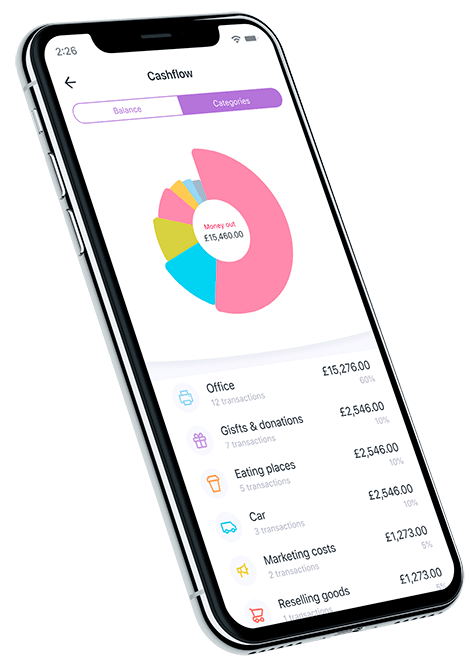7 Costly Banking Mistakes to Avoid When Switching from Sole Trader to Limited Company

UK Business Statistics: Why More Sole Traders Are Going Limited
As of 2024, the United Kingdom boasts approximately 5.5 million private sector businesses.
Of those, around 3.1 million are sole proprietors - independent, self-starting, often solo operations that drive the backbone of the UK economy. However, a transformation is taking place: the number of sole traders is steadily declining, down 4% from the previous year. In contrast, limited companies now represent a growing 38% of all businesses, signalling a shift toward more formalised, growth-ready structures.
This isn’t just a matter of legal classification. Transitioning from a sole trader to a limited company unlocks access to tax efficiencies, stronger brand credibility, and legal protection for the business owner. But it also ushers in a wave of financial changes that many underestimate. Chief among them? Banking.
Why Switching from Sole Trader to Limited Company Is More Than a Rebrand
Switching from sole trader to limited company isn’t a branding exercise. It’s a full-scale business evolution. Suddenly, you’re not the business anymore - your company is. And with that, comes the need to rewire your financial foundations. This shift impacts everything: how you bank, how you pay yourself, how you manage tax, and how you communicate with clients.
Unfortunately, many business owners walk into this transition with the same bank account, the same habits, and the same mindset. And that’s where the challenges begin to occur. Below, we uncover seven of the most common - and costly - banking mistakes entrepreneurs make when transitioning to a limited company, and how to avoid them.
Mistake 1: Holding On to a Sole Trader Bank Account
When you become a limited company, you and your business are no longer one and the same. Your old sole trader account becomes obsolete - not just legally, but practically.
Why it matters:
- Your limited company must have its own bank account under its registered name.
- Using an old or personal account can cause payment issues, tax confusion, and reputational damage.
Real-world example: HMRC has previously fined directors for failing to separate personal and company transactions, leading to tax misreporting and penalties that ran into thousands of pounds. These cases highlight how costly it can be to cut corners on something as basic as having the right account.
Instead, open a business account for limited companies. Amaiz, for instance, offers a streamlined setup with features designed for incorporated businesses.
Mistake 2: Mixing Personal and Limited Company Business Funds (Why HMRC Dislikes It)
It may seem harmless to cover a business lunch with your personal card or pay your phone bill from the company account, but these casual habits create a tangled web of financial crossover.
The consequences:
- Compromised legal protection
- Chaotic bookkeeping
- Risk of non-compliance with HMRC
A well-organised business account should support sub-accounts or 'jars' for expenses like VAT, Corporation Tax, and dividends - ensuring funds stay ring-fenced and clearly categorised.
Case study: One contractor shared how using jars saved them from a £7,500 Corporation Tax shock. By automatically setting aside 20% of every invoice, the funds were there when the tax bill landed, avoiding a financial scramble.
Mistake 3: Delaying Registration for Corporation Tax and PAYE
Becoming a limited company comes with new tax responsibilities. You have just three months from incorporation to register for Corporation Tax. PAYE registration is essential if you plan to draw a salary.
What can go wrong:
- Fines and penalties from HMRC
- Disruption in paying yourself legally
Banking tools that track income, payroll, and tax deadlines can serve as invaluable reminders during this shift. Amaiz, for example, offers exportable records to streamline compliance.
Mistake 4: Underestimating New Tax and Dividend Liabilities
Unlike sole traders who deal primarily with Income Tax and National Insurance, limited companies must juggle:
- Corporation Tax
- Employer and employee NI contributions
- Dividend tax
- VAT (if registered)
Without forward planning, these bills can surprise you.
Better practice: Automate your saving strategy by allocating percentages of your income to tax jars. It’s far easier to build financial resilience slowly than scramble for funds when your tax bill lands.
Mistake 5: Choosing the Wrong Business Bank Account
Many entrepreneurs default to a high street bank, assuming it’s their only option. But traditional banks often come with dated interfaces, slow support, and hidden fees.
What to watch out for:
- Charges for incoming transfers or international payments
- Inability to issue virtual cards to staff or contractors
- Lack of modern features like receipt capture or sub-accounts
Modern alternatives like Amaiz provide clarity, flexibility, and custom-built tools for today’s business environment - no queues, no paper forms, and no surprises.
Mistake 6: Forgetting to Update Business Details After Incorporation
Post-incorporation, every document tied to your business must reflect your new status. This includes:
- Invoice templates
- Contracts
- Bank mandates
- Accounting software
Failure to update can lead to client confusion, delayed payments, and compliance issues.With a lot of digital banking platforms you can manage invoicing and receipt capture, update client records, and sync data with your accountant in one place.
Mistake 7: Neglecting to Build a Clean Financial Record
The way you manage your limited company’s finances sends a signal - to lenders, to clients, and to future investors. A messy, mismanaged bank account can hinder growth.
Best practices include:
- Avoiding cash withdrawals
- Tracking every transaction
- Categorising income and expenses accurately
- Reconciling monthly
The right bank account should make this effortless. With Amaiz instant transaction notifications, and exportable statements ready for any accountant.
Conclusion: Smarter Banking Tips for Limited Companies
Incorporating your business is more than a legal decision - it’s a mindset shift. It’s about treating your company with the structure, respect, and foresight it deserves. Your bank account isn’t just a place to hold money; it’s your financial dashboard, your operational partner, your strategic advantage.
By avoiding these common mistakes and choosing the right financial tools from day one, you give your limited company a strong, confident start.
👉 Ready to open a business account for your limited company? Explore Amaiz today and put the power of modern business banking at your fingertips.

Download now!
And you can open a business account with all the support you need in minutes.



